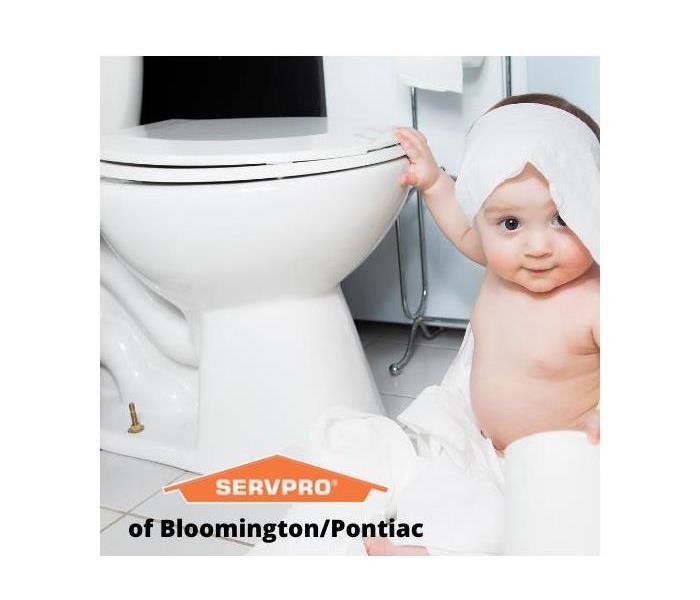When your toilet isn't behaving
6/21/2021 (Permalink)
In a perfect world, your car would never make that noise, every bill would come when you had the money to pay for it and your toilet would never leak. Sadly, the world is not perfect and all of these happen, there is something we can help you with. We can help when your toilet has decided not to work in your perfect world.
Toilet water damage can cost $5,000 and THEN some (and that’s on top of the deductible). What’s worse is that one-third of toilet catastrophes started with a clogged or overflowing toilet, this is something that is easily avoided with proper toilet maintenance.
What Do I Do if My Toilet Overflows?
If the toilet is overflowing and it is not because of a blockage, then it could be that a simple float adjustment could save you from overflow and toilet water damage. Lower or raise your toilet float until the desired bowl fill level is reached.
Don’t flush again! If your toilet is definitely clogged, avoid the temptation to keep flushing the toilet to see if the waste will go away. This works seldom to none and often will cause the most damage.
Try a plunger. A simple-inexpensive tool every home or business should have. If the toilet is clogged but not spilling water onto your bathroom floor, try dislodging the clog with a plunger.
If none of this is working - turn off the water. If your toilet bowl is overflowing, then your first step should always be to turn off the water supply to your toilet.
This knob is usually located on the wall near the base of the toilet, below the tank. If this isn’t working you will have to shut the main water off to avoid further damage.
Call a professional plumber to fix the problem, then contact a restoration company to safely clean up the water damage and conduct any repairs necessary.
Here are some tips to help in those times of trouble*
Is Water Damage from a Toilet Covered by Insurance?
Sometimes yes…but not always. Every insurance policy is very different, but homeowner’s insurance usually will typically cover damage to your toilet and whatever water damages it caused to your home if the toilet water damage was sudden. Mold damage may or may not be covered. And typically, you’ll still be responsible for paying your insurance deductible.
If your toilet backup was caused by a clogged sewer line, however, your insurance will likely not cover the damages unless you have a policy that supports sewer backups. (check that out )
How Can I Avoid or Reduce Toilet Water Damage?
Check after you flush-simple. If you suspect that your toilet is clogged or not flushing properly, simply wait a few seconds after flushing to see if the bowl refills. If the water keeps rising, reach inside the toilet tank and lift the float. This will stop the water flow and avoid any toilet water damage. Then, turn off the water supply valve at the base of the toilet. Then go through the repair steps-but taking quick action can avoid a TON of headaches.
Perform annual maintenance on plumbing mechanics. Check the supply valve, flush valve, fill, chain, and other components to make sure they are working correctly. Make sure you know how to turn off the water supply both to the toilet and the main shut-off.
Is Toilet Water Dangerous?
Potentially. If your toilet overflows and contains any raw sewage or fecal matter, then you should not touch it without wearing proper protective clothing. However-if it has flushed and is refilling and simply won’t stop—it most likely is not. Either way-the “situation” should be dealt with properly.
What do I do if toilet water has gotten to the carpet?
Toilet water that has soaked into your carpets or other flooring material is considered a biohazard because it is full of microparticles that could quickly develop into mold or fungus if not properly sanitized. It is typically necessary to remove carpet that has been exposed to toilet water altogether and start fresh.
Instead of trying to handle toilet water damage yourself, leave it to the professionals, like your local water damage restoration company. They’ll have the proper sanitation chemicals to ensure that your house doesn’t develop mold and that your hardwood floors aren’t ruined forever.
SERVPRO® of Bloomington/Pontiac has years of experience with these types of situations, we know what to do and how to properly handle it. Contact us today at 309-827-7500!






 24/7 Emergency Service
24/7 Emergency Service
